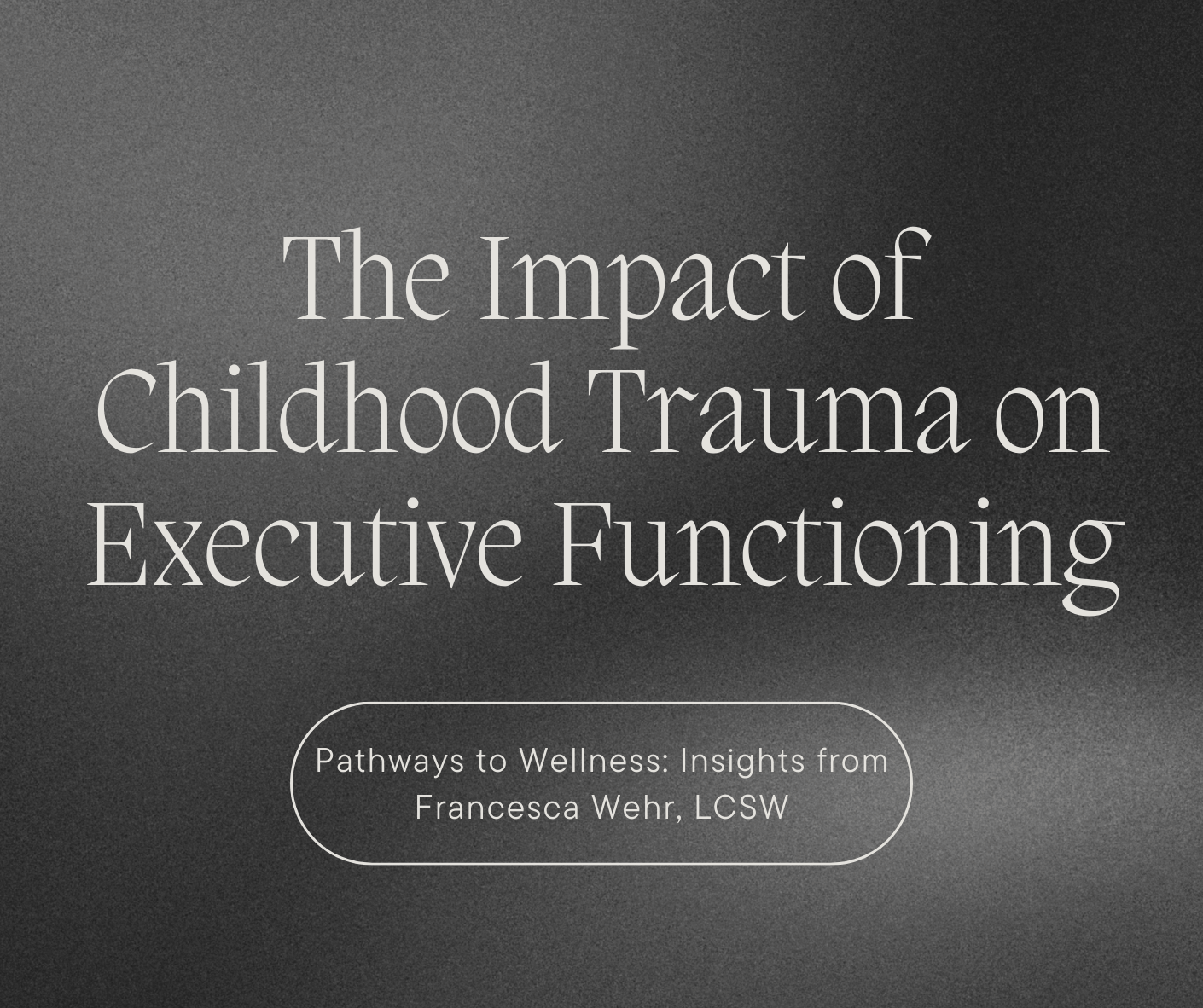
Executive Functioning Disorders: How They Affect Emotional Regulation & Motivation
Executive functioning disorders can deeply affect an individual’s ability to regulate emotions and stay motivated. From difficulty starting tasks to managing emotional responses, these challenges often arise in people with conditions like ADHD, Autism Spectrum Disorder, and Traumatic Brain Injury. This post explores how executive dysfunction impacts emotional regulation and motivation, common signs to look out for, and effective strategies to manage these issues. Whether you're dealing with these difficulties personally or supporting someone who is, this guide offers valuable insights and practical tips for improving day-to-day life.

The Impact of Childhood Trauma on Executive Functioning
Childhood trauma can have long-lasting effects on executive functioning, impairing key cognitive processes like emotional regulation, planning, and problem-solving. These deficits stem from changes in brain development caused by early-life stress, making it difficult for trauma survivors to manage daily tasks, control impulses, and stay organized. However, with the right interventions, such as trauma-focused therapy, mindfulness practices, and executive functioning coaching, it’s possible to rebuild these skills and improve cognitive performance. This guide explores how trauma impacts executive functioning and offers strategies for healing and growth.

Pathological Demand Avoidance (PDA): The Invisible Battle for Autonomy in a World of Expectations
Pathological Demand Avoidance (PDA) is more than procrastination—it’s a nervous system response rooted in anxiety, trauma, and a deep need for autonomy. This post explores how PDA shows up in daily life, how it overlaps with rejection sensitivity, and what it means to truly support someone caught in the cycle of avoidance, shame, and overwhelm.

Understanding Attachment Styles: How They Shape Relationships and Emotional Well-Being
Our attachment styles—secure, anxious, avoidant, or disorganized—play a key role in how we form and navigate relationships. Rooted in early experiences, these patterns influence intimacy, trust, and communication. Dive into the characteristics of each style and discover strategies to foster emotional growth and healthier bonds.

Brainspotting Therapy: A Deep Dive into Healing Trauma and Emotional Regulation
Brainspotting therapy is a powerful method for healing trauma, anxiety, and emotional distress by targeting deep brain processes. Unlike traditional talk therapy, Brainspotting helps the nervous system reprocess stored trauma for lasting relief. Learn how it works, its benefits, and how it compares to EMDR.

Unraveling the Tangle: Understanding Emotional Dysregulation and Its Origins
Emotional dysregulation can make everyday life challenging, leading to intense, sometimes overwhelming reactions. This post delves into the causes of emotional dysregulation, from brain science to past traumas, and offers actionable strategies to help you manage your emotions more effectively. Discover how mindfulness, therapy, and self-care can pave the way to greater emotional balance.




